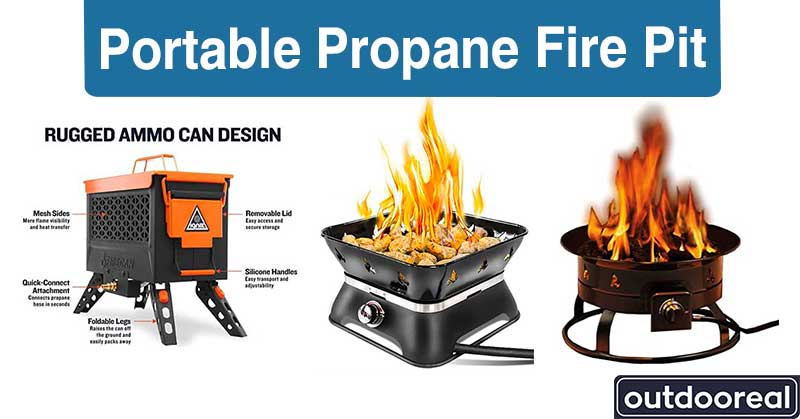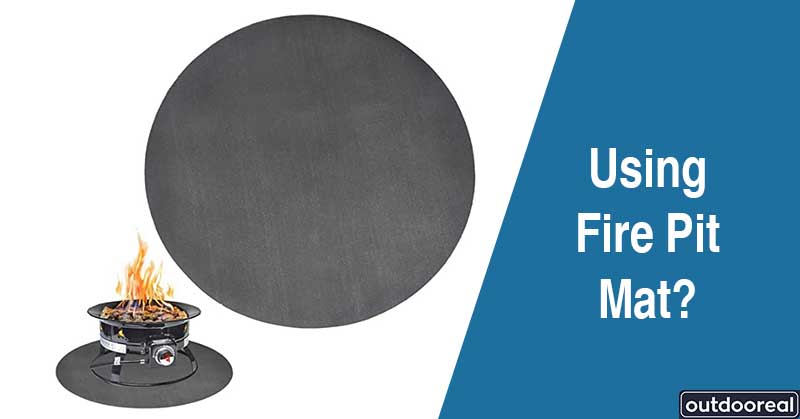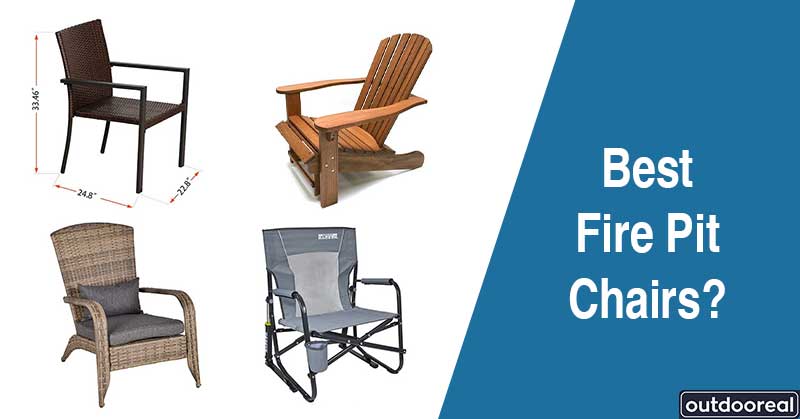Yes, if you use a patio heater outdoors by maintaining all the necessary safety clearances and other requirements, then it is entirely safe. However, the different type of heaters needs different kinds of approaches and maintenance. And they can be extremely hazardous if you use patio heaters indoors or in incorrect locations.
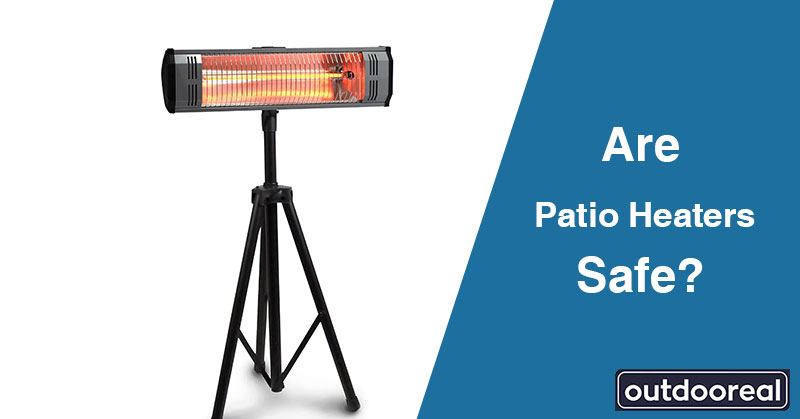
How Safe Patio Heaters Are?
Patio heaters offer a variety of safety features to guard against fire threats and unintentional injury. They were created with consumer safety in mind. Regarding portability and aesthetics, each outdoor patio heater has pros and downsides. However, your patio heater’s heat capacity and fuel efficiency should be your primary concerns when it comes to safety.
In this section, we have discussed the safety and hazards of different types of patio heaters.
How Safe Are Propane and Gas Heaters?
Propane or gas fuel heaters are popular for people seeking high heat in chilly areas. Usually, gas heaters are fixed, so you must be careful when selecting the location, as gas heaters need massive ventilation. Propane heaters are portable and use propane gas. This gas is highly combustible and can exude hazardous odors. Since propane has no smell or color, it might be challenging to tell whether you are exposed to potentially fatal poisonous vapors. So, ensuring proper ventilation is a must. Also, never use a propane or gas patio heater indoors, as it poses a life risk and other severe diseases. However, using the propane or gas patio heater is safe by maintaining the clearance distance and ventilation.
How Safe Are Electric Patio Heaters?
Electric infrared patio heaters come in several designs, for example, wall mount, portable, hanging, standing, tabletop, etc. And they are safe to use in the patio, gazebo, or pergola. As they do not emit poisonous gases, it is much safer to use an electric heater. However, unlike gas heaters, it is dangerous to use them under rain or snow. You may get an electric shock if the power cord is not properly shut off while raining, snowing, or wet.
Apart from the Type-wise Safety Issues, Patio Heaters Have Some Common Problems, Which You Must Be Aware Of:
Tipp Over
If the patio heater is placed on an uneven surface, it might tip over and cause a fire hazard. Most patio heaters have anti-tipping features that guard against the device toppling over and hurting someone or breaking something. Despite these safety precautions, if the patio heater is left in an area where strong winds are likely to blow, it might easily topple.
Safety Distance and Cautious Touching
Outdoor patio heaters are designed to provide extreme heat levels. The vicinity of the heater should be maintained for flammable objects. Make sure there is a sizable gap between any furniture or other ornamental items you place in your outside space and the heater before putting them there. You must exercise caution when working with or close to any heater. Kids, pets, or even adults could suffer a severe burn from the scorching metal surrounding the heater.
How Much Top Clearance is Required to Use a Patio Heater?
According to NFPA, patio heaters need at least three feet of top clearance from the roof, covered porch, or canopy.

Gas vs. Electric Infrared Heaters, Which One is Safer?
Electric infrared heaters are safer than gas patio heaters. When it comes to safety performance, electric heaters are way ahead of gas patio heaters in the following factors:
Carbon Monoxide and Toxic Gas Emission:
Gas or propane fire pits emit a considerable amount of toxic gases, and inhaling the poisonous gases for a long time is a health hazard. You can even go unconscious; many threatening diseases may happen due to breathing in toxic gases.
Tipping Over and Burning:
If a gas fire pit gets tipped over, it will directly cause a fire, which is dangerous. About electric heaters, tipping is tricky but not as hazardous as gas patio heaters.
Gas Leak or Cylinder Blast:
If you are not careful, the heater’s gas connection may leak and cause a severe fire accident. Also, propane cylinder blast or leakage is another threat you do not have to worry about while using an electric patio heater.
However, electric patio heaters have some risks too. You should never use an electric patio heater in rainy or wet conditions.
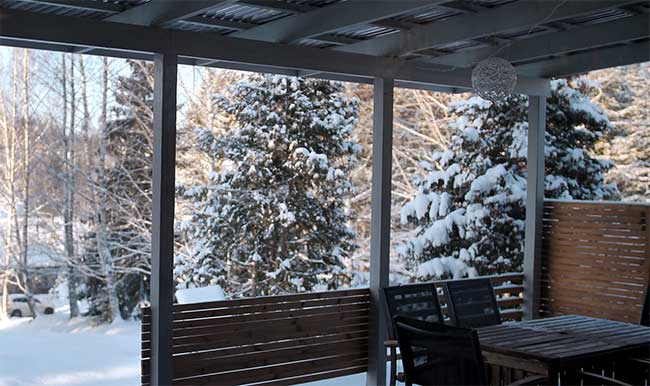
Are Portable Outdoor Heaters Safe?
Yes, portable outdoor heaters are safe if you use them by maintaining the manufacturer’s instructions and safety rules. You can use a portable outdoor heater in the backyard, patio, or under a gazebo or pergola. Never use a patio heater in an enclosed place, and remember to place it in a smooth, even location so it does not get tip over.
Do Patio Heaters Have Health Hazard?
Yes, gas and propane patio heaters are potential health hazards if used in a closed or little-ventilated place.
Patio heaters, both portable and fixed models with open flames, should only be used outside and away from combustible things. There is a chance of fire or carbon monoxide poisoning if used in a tent or enclosed space, close to flammable tablecloths or paper goods, or any other situation. According to fire safety authorities, carbon monoxide can be lethal and is a primary cause of accidental poisonings yearly.
When used in an enclosed place, the gas scatters around the room, and everyone in your home will inhale the toxic gases. These gases could poison you if you breathe them consistently over an extended time, and this gas inhalation causes cancer. Carbon monoxide poisoning is lethal because, unlike most other gases, it has a comparatively high fatality rate when inhaled for an extended period.
[ You may also like: Patio Heater buying guide for this year. ]
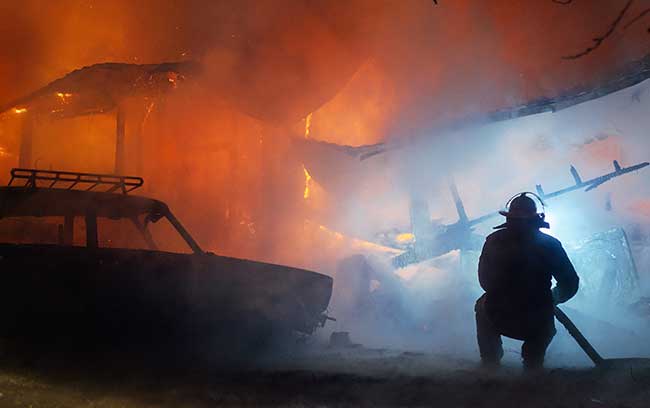
10 Safety Tips to Reduce the Risk of Fire
Outdoor patio heaters are likely to be safer than fire pits or fireplaces. However, that does not reduce the risk of fire hazards. Here are some safety precautions according to the National Fire Protection Association for different types of patio heaters to reduce the risk of fire;
Propane or Gas Patio Heaters
- A three feet minimum clearance from all the flammable items
- Enough ventilation is a must, and a propane patio heater should not be used in a closed place
- Shut it down when you have finished using it
- Place in an even and smooth place, and you can use protective heat pads for tipping over the risk.
- According to NFPA 1, cylinders cannot be kept inside a building and must be held in a position with enough lighting. Also, the storage of cylinders on the roof is prohibited.
- You should never place a cylinder or store heater within five feet of an exit.
Electric Patio Heaters
- You should not use multiplug adapters and extension cords for the heater’s cord connection. It is better to plug in the permanent socket.
- Do not leave the patio heaters running under rain or snow.
- Never touch a wet patio heater
- Always place the heater on an even surface for the risk of tipping over.
Final Thoughts
Outdoor patio heaters are nice gadgets to provide warmth with safety. Also, maintenance is more manageable than other fire features; however, you should always check the manufacturer’s instructions and be on guard for any fire feature. Adapting the safety precautions will help you enjoy an excellent, guaranteed time with a patio heater.



